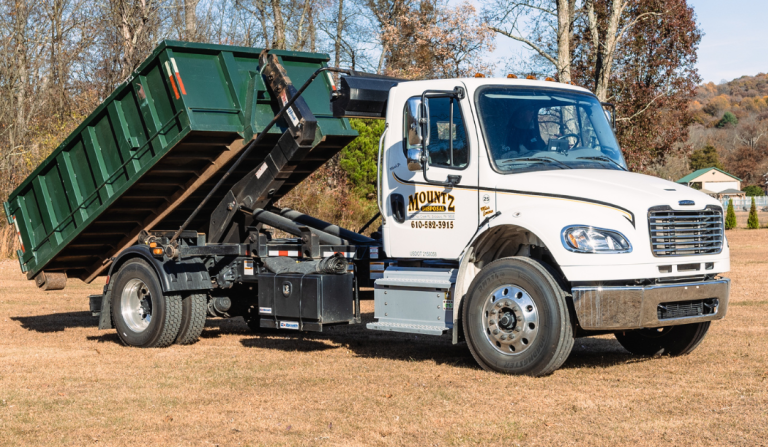
Relocating from the shores of Lake Michigan to the “city in a forest” is more than a change of scenery, it’s a 700+ mile logistics puzzle that rewards planning. The Chicago-to-Atlanta corridor typically runs 715–740 road miles, crosses one time zone, and involves two very different urban infrastructures. With the right schedule, packing strategy, and transportation plan, the move can feel smooth instead of stressful. This guide lays out practical, 2025-ready strategies used by experienced Chicago Atlanta Movers, plus when to line up permits, how to protect valuables, and what to expect with delivery windows. Have specific questions about your dates, building access, or insurance? Contact us early to get realistic timelines and cost options locked in.
Scheduling strategies for major relocations across states
A long-distance move lives or dies by the calendar. For Chicago-to-Atlanta, they’ll want to begin 8–10 weeks out in normal seasons (and 10–12 weeks from May through August). Peak dates, end of month, weekends, and holidays, book first and cost more. Midweek, mid-month moves often deliver the best value.
Key schedule anchors:
- Building rules and permits: Many Chicago high-rises require elevator reservations, a Certificate of Insurance (COI), and specific load-in/load-out windows. Street parking permits for moving trucks may be required and usually need lead time. In Atlanta, condo/HOA properties frequently require a COI and may limit weekday hours.
- Time zone and daylight: Chicago is Central Time: Atlanta is Eastern. That one-hour jump can affect delivery windows and utility appointments.
- Weather buffer: Winter in the Midwest and spring storms in the Southeast can slow travel on I‑65/I‑75. Add a 1–2 day cushion if moving during volatile seasons.
- School and job timelines: Families often target breaks: executives align with start dates. Both benefit from flexible “first available date” windows for delivery.
A simple planning cadence helps: confirm inventory and access details at booking, lock elevators/permits 2–3 weeks out, and finalize the travel-day checklist the week prior. Chicago Atlanta Movers who build in buffers and verify site access tend to keep everything (and everyone) calm.
Packing methods that protect valuables during long-distance moves
Long highway miles magnify small packing mistakes. The safest approach is to use purpose-built materials and a repeatable process.
What works well:
- Double-walled cartons for heavy or fragile items: dish packs for kitchenware: wardrobe boxes to keep clothes on hangers.
- Furniture protection: quilted moving blankets plus stretch wrap to shield from scuffs and road vibration. Use corner protectors on framed art and mirrors.
- Custom crating for fine art, glass tops, sculptures, and high-end electronics. For most electronics, original boxes are ideal: otherwise, anti-static wrap and rigid foam inserts help. Back up data before packing.
- Mattress bags and sofa covers to keep fabrics clean. Avoid plastic directly on wood, use paper padding first.
- Box weight discipline: cap at ~50 lbs and keep weight dense at the bottom. Tape with an H-pattern and label on two sides plus the top.
- Smart labeling: color-code by destination room and add a brief contents note. QR-coded inventory apps can store photos, serial numbers, and value details in one place.
Know what not to pack: aerosols, paints/solvents, propane, bleach, firearms (without proper procedures), perishable or open food, and often live plants. For peace of mind, many choose Full Value Protection valuation: the lower-cost alternative, Released Value Protection, covers only $0.60 per pound per article, rarely sufficient for modern households. Reputable Chicago Atlanta Movers will explain coverage options and any deductibles before move day.
Transportation choices for interstate relocations in 2025
There’s no one-size-fits-all method. Each option balances cost, timing, and control.
- Dedicated/Direct Service (full-service carrier): A truck dedicated to one shipment (or a tightly routed pair) typically offers the fastest transit and the least handling. Best for time-sensitive moves, large homes, or high-value shipments.
- Consolidated/Shared Load: Your goods share trailer space with other shipments on a similar route. It’s budget-friendlier but comes with a broader delivery window.
- Containerized solutions (portable containers) or freight-based hybrids: Flexible for DIY packers who want predictable pricing and staggered loading. Transit times vary: urban access and permitting matter for container placement in Chicago and Atlanta.
2025 realities to factor in:
- Digital-first estimates: Virtual video surveys are standard and accurate when inventory and access notes are thorough.
- Compliance and safety: ELDs (electronic logging devices) and Hours-of-Service rules shape daily driver limits, which in turn affect delivery windows.
- Tracking and transparency: GPS portals and proactive text/email updates are table stakes for quality Chicago Atlanta Movers.
- Sustainability trends: Anti-idling policies and aerodynamic trailers are common. Electric heavy-duty tractors are growing regionally, but diesel remains dominant for long interstate hauls.
Always verify FMCSA licensing (USDOT and MC numbers) and insurance. Ask how the carrier handles tight access in Atlanta neighborhoods like Virginia-Highland or Inman Park, sometimes a smaller shuttle truck is required.
Managing delivery timelines in Chicago-to-Atlanta moves
Most 700–750 mile shipments deliver within a multi-day spread rather than a single guaranteed day, unless they purchase direct/expedited service. Typical scenarios:
- Direct/Dedicated: 1–2 travel days, plus any agreed buffer.
- Consolidated/Shared: 3–7 business days is common, with a broader delivery window to optimize routing.
- With Storage-in-Transit (SIT): Delivery aligns with the customer’s “first available date.” Useful when leases don’t line up.
Variables that shape timing include building access windows, weather, traffic around Nashville/Chattanooga and metro Atlanta, driver Hours-of-Service, and whether a shuttle is required for final delivery. Clear communication helps: the dispatcher confirms the first available date, the coordinator updates the spread, and the driver gives a day-before ETA.
Pro tip: If they’re flying to Atlanta, arrange key handoffs, locksmith, COI for the destination elevator, and utility turn-ons, so the crew isn’t waiting curbside. And remember the one-hour time change when stacking appointments.
Reducing stress through organized planning and preparation
Moving stress shrinks when decisions are front-loaded and information is centralized.
- Build a living checklist by week. Reserve movers, elevators, and permits early: batch admin (USPS change of address, insurance updates, voter registration) into one session.
- Create a move binder or shared folder: estimates, COIs, inventory, floor plans, and contact info for building managers on both ends.
- Stage a “do-not-pack” zone with essentials: medications, chargers, a small toolkit, important documents, a two-day clothing kit, pet supplies, and basic kitchen items.
- Plan for kids and pets: sitters on load/unload days keep everyone safer and faster.
- Expect hiccups: weather, traffic, or an elevator outage. A small buffer budget and 24–48 hour schedule cushion are sanity savers.
Mindset matters too. They can measure progress instead of perfection: rooms cleared, services scheduled, decisions made. Organized planning doesn’t just cut costs: it protects energy for the first week of settling in.
Role of movers in ensuring safe and timely transitions
Professional movers aren’t just extra hands, they’re risk managers. A solid Chicago-to-Atlanta team will:
- Conduct a pre-move survey (virtual or in-home) to verify inventory, access, and any items requiring crating.
- Provide a clear estimate type (binding, not-to-exceed, or non-binding) and explain the tariff and valuation options.
- Protect the home: floor runners, door and banister pads, and proper disassembly/reassembly for beds and large furniture.
- Maintain a detailed inventory at load and check it at delivery.
- Communicate proactively about windows, ETAs, and any changes.
How to vet them:
- Check FMCSA Safer and Licensing & Insurance for USDOT/MC status and coverage.
- Read recent reviews for long-distance performance, not just local moves.
- Ask about claims rates, average on-time performance, and whether they provide a dedicated coordinator for interstate shipments.
- Beware red flags: large cash deposits, name changes that dodge reviews, or vague paperwork.
Reputable Chicago Atlanta Movers make timelines predictable and damage rare. If a tailored plan would help, Contact us to compare direct vs. consolidated options, access solutions, and coverage levels for your exact inventory.











